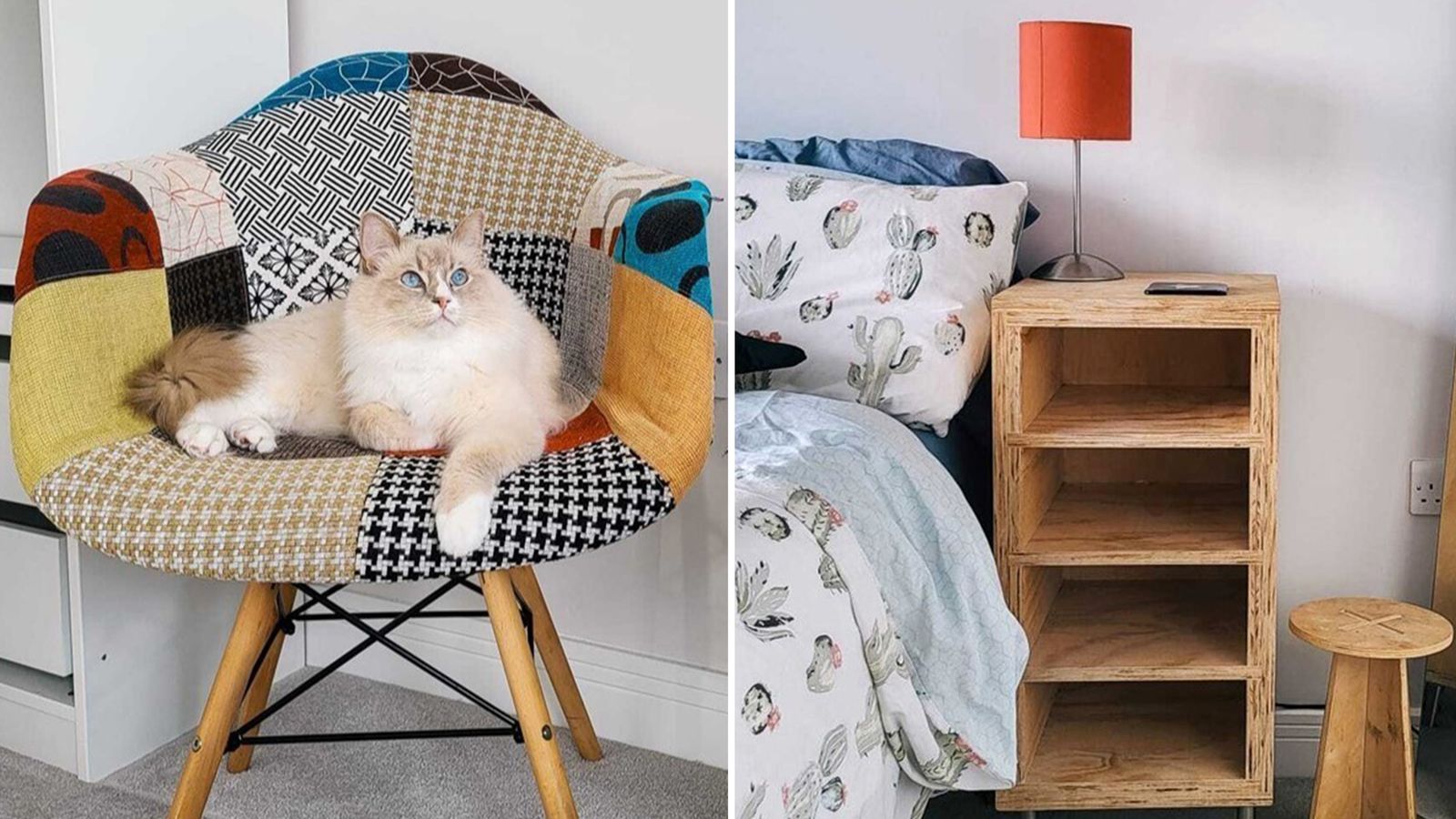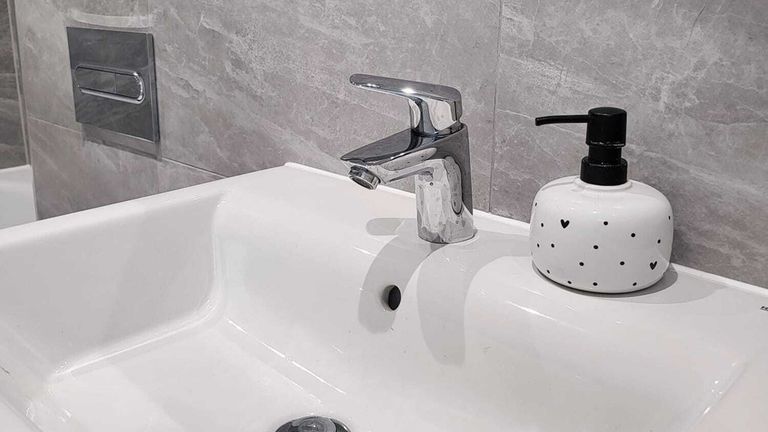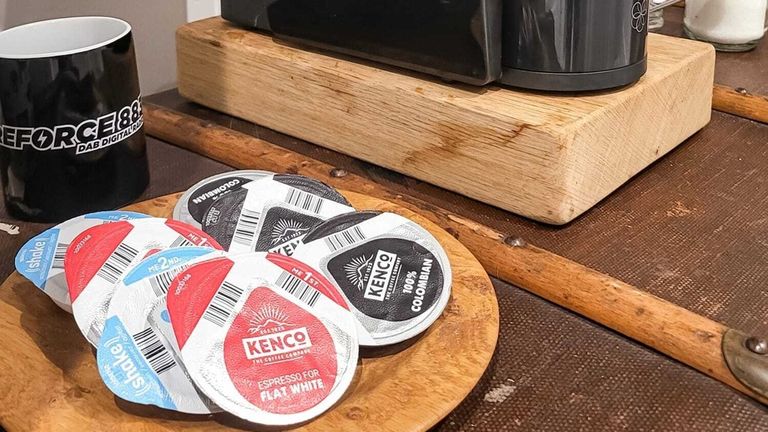It’s 9pm on a Tuesday and a stranger from Shanghai is cooking in my kitchen. I don’t speak Chinese, and she doesn’t speak much English, so we both had to mimic when she asked me where I kept the knives and salt.
I had only met this woman 24 hours earlier, but she is staying at my house for another four days – all thanks to an advertisement on the London Underground.
“Turn your spare room into cash with Airbnb!” it promised. Well, I’m lucky enough to have a spare room, and I never seem to have enough money (thanks to a litany of mounting bills and wanting the occasional vacation), so could this be the answer?
I forced my husband to clean out our top floor room one weekend and soon I was taking photographs, artfully framing different corners of the space to try to show it off (not helped by my cat, who refused to get out of the way).
After downloading the app and signing up, I was paired with an Airbnb Superhost who provided tips and support as I made my way to my first booking. He advised that rather than offering an introductory discount, as the app encouraged, the best way to generate more sales was to look up the price of local listings and then undercut them. After I built up a number of reviews (I aimed for five stars) I was able to increase my prices.
My neighbors were quoted between €40 and €55 per night, so I hedged my bets and started at €35, with a €10 cleaning fee. Within 24 hours I had my first booking. A young Border Police officer was training at Heathrow and needed a place to stay. We gave him a set of keys, told him to make himself at home and five days later we were £117 better off.
After several months of hosting (and – don’t brag – ten five-star reviews) we are now almost always fully booked.
Tips for smooth sailing when welcoming strangers
I have a pretty good weirdo radar, and when it comes to letting people in at your front door, it pays to trust your gut – I’ve turned down bookings simply because I got a bad feeling.
The guy who wanted to rent my room from 9am to 3pm to ‘meet a friend from London’? No.
The man who wanted to stay for three months? Not for me.
A young gentleman who promised to pay me in cash upon arrival? Thanks but no thanks.
(You’ll notice a common theme here – since I often work alone from home during the day, I don’t take any chances).
Touch wood, anyone who does has arrived has been friendly, polite and most importantly not smeared feces on the walls, tried to remove the sink or done any other Airbnb horror story.
Read more from the Sky News Money blog here
How to get good reviews
Did I mention we have five stars? I don’t think there’s any real secret to getting a good review, but I was trying to think of what I would want to check into someone’s home. Make sure you have high-quality photos that match what the room actually looks like; don’t go crazy with the filters.
We always ensure that the place is clean, well presented and tidy. Small, thoughtful details such as a TV with a Skybox, a box of toiletries and a coffee maker also go a long way.
I’m also very honest about the fact that we have pets – the last thing I want is for someone with allergies to book (and give me two stars!), so Louie is front and center in the ad.
The pitfalls you should avoid
After the success of Airbnb, I decided to take it one step further and list our room on Booking.com. Their management platform is clunky, hard to use and you can’t control people who book – they just book straight away and that’s it, you’re stuck with them. It’s also a bit of a hassle to double check both platforms to make sure you don’t accidentally double-book. But it does give us significantly more bookings than Airbnb.
As boring as it is, you also have to consider the tax consequences. The good news is that Airbnb isn’t taxed like Vinted or eBay (which has a tax-free allowance of £1,000).
If you rent a furnished room in your main home (i.e. not a second home), you can claim this compensation. Rent-a-room lighting. The threshold for this is €7,500 per year (or half if you share the income with your partner). The tax exemption is automatic, meaning if you are below that you don’t have to do anything, but if you earn above that you will have to fill out a tax return. As we earn around £350 a month from our room we will be well below that.
If you rent out an entire home that you do not live in, different rules apply. You must also notify your home insurance company of the change.
I convinced my mum to list her spare room on the platform, and she’s had quite a bit of success too (pardon the girls who threw up in her bin during Cheltenham race week and the woman who had a star knocked off because she forgot a towel in the bathroom). Then I convinced my brother’s girlfriend to give it a try.
Read more:
Holiday pay – where to buy it and one thing you shouldn’t do
The most common holiday fraud
However, I made a pretty significant mistake: I forgot to get them to sign up using my host referral code. You can earn up to £268 for each host you refer, which means I missed out on a pretty big chunk of change. When they switched to Booking.com, I forgot to refer them again, meaning I missed out on hundreds of commission-free bookings through their scheme. I try not to think about that too much…
Overall, I’ve really enjoyed using Airbnb – in just over two months we converted our guest room for over £700. And while I would like to live in a world where we can pay for our daily expenses without cluttering up our spare room like a cheap roadside motel, we are where we are.
If you have the space, good radar for checking people out, and are open to invasion of your personal space, this could be right for you too.
Call me first for a referral code. (Editor’s Note: It’s just a joke).


